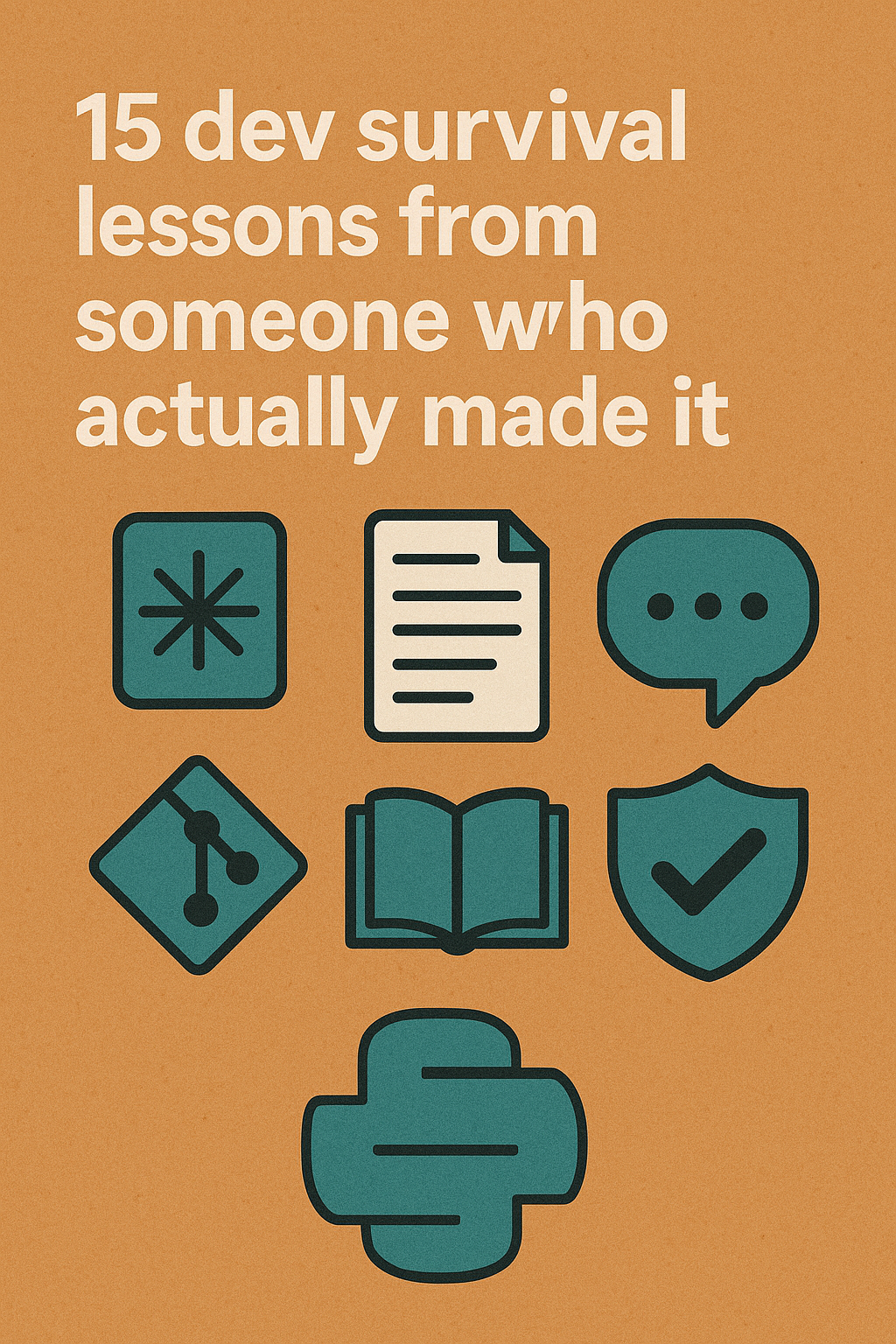Medium
1M
343

Image Credit: Medium
15 dev survival lessons from someone who actually made it
- The article shares 15 survival lessons for developers based on real-life experiences in dealing with legacy code, bugs, and architecture challenges.
- The lessons focus on mindset shifts, code clarity, refactoring with understanding, and the importance of good communication and accountability.
- Key points include studying architecture before refactoring, prioritizing clear and readable code over complexity, and making small improvements consistently.
- Developers are advised to ask specific questions, prioritize debugging skills, and utilize clear and detailed log messages for effective troubleshooting.
- Mastering tools like IDEs, Git, and debugging utilities is emphasized, along with treating them as essential weapons in the development process.
- Accountability and transparency in handling mistakes, thinking like a product owner, and naming variables and functions effectively are highlighted as crucial skills for developers.
- Learning from experienced developers, taking time to understand problems before coding, and enhancing communication skills are emphasized for long-term growth.
- Automating repetitive tasks cautiously, learning from well-written codebases, and staying curious and hungry for knowledge regardless of job titles are recommended for developer success.
- Overall, the article encourages developers to focus on continuous improvement, clear communication, and delivering value rather than just writing code.
- The lessons emphasize the importance of mindset, learning from mistakes, and approaching development with a strategic and thoughtful mindset.
- By adopting these survival rules and mindset shifts, developers can navigate challenges, improve their skills, and contribute effectively to their teams and projects.
- Remember, writing code that matters, communicating effectively, and continuously learning are key factors in becoming a successful and valuable developer in the long run.
Read Full Article
20 Likes
For uninterrupted reading, download the app